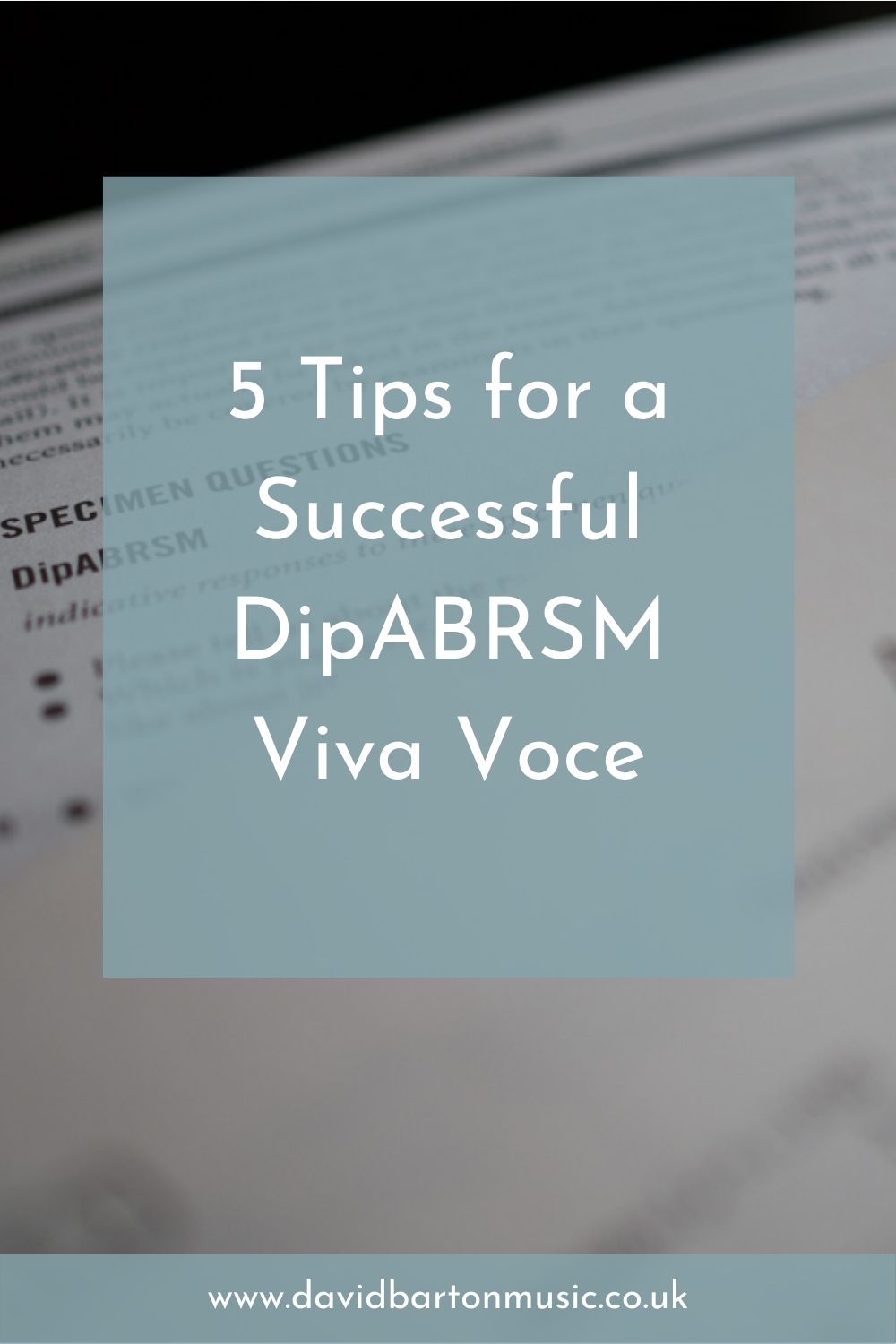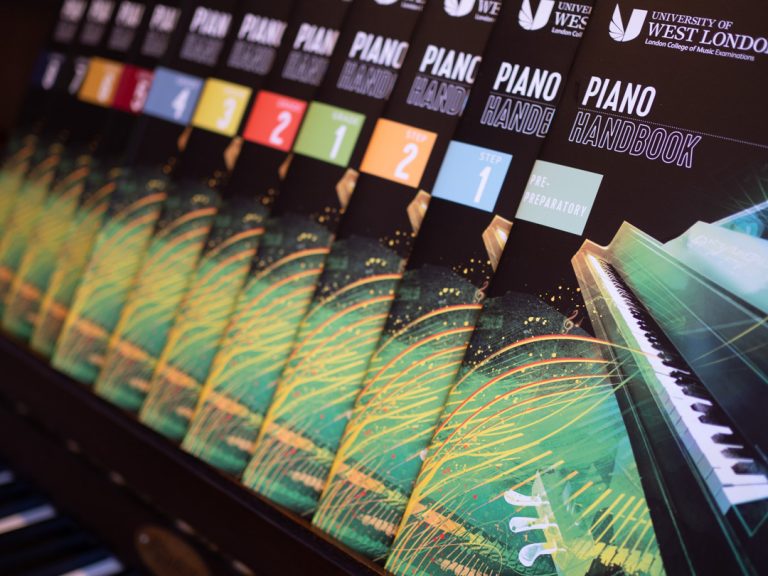In my work as a mentor for teaching diplomas, it is often the DipABRSM viva voce which sends shivers down the spine of candidates. Often, people’s most pressing thought is: “but they could ask my absolutely anything!”
I think the same feeling is true whether you’re preparing for a performance or teaching diploma. Come to think of it, much applies at other diploma levels too, and to other exams as well such as the discussion element of LCM diplomas.
With over 10 years experience mentoring for teaching diplomas, in this blog post I’m going to share some of my top tips to help you make a success of your DipABRSM viva voce. Given that many candidates will have travelled wildly differing journeys to reach this point, not all these will apply equally to everyone. That said, I hope they offer a chance to reflect on the viva voce as you prepare for your DipABRSM exam.
1. Be confident
In music, we rightly talk a lot about performance anxiety and nerves. But, have you ever tried turning this around? How confident do you feel?
In my view, whether you’re preparing for the performance or teaching DipABRSM, you should be confident in your approach. In a performance diploma, you’ll have made decisions about how you interpret particular pieces, and in a teaching diploma, you’ll have made decisions about how you teach a particular piece. How confident do you feel in those decisions?
Reflect on this: if you’re not feeling confident in those decisions, what could you do to increase that confidence? What’s stopping you being confident in those choices you’ve made?

2. There is rarely a ‘right’ answer
A lot of candidates worry they won’t give the ‘right’ answer, but what is this mythical ‘right’ answer? I want to reassure you that there is rarely a right answer. It is true, some answers will be better than others, and some decisions will be more effective than others, but neither mean your approach is wrong.
In many ways, this links back to my previous point about confidence. Rather than worrying about whether your answer is right, consider how confident you are and why. Let’s take the example of using the piano pedal in baroque music. There are arguments for and against, but no single right answer. What’s more important in a DipABRSM viva voce is your reasons for using it. Can you justify your choice? An examiner may not agree with your choice, but that doesn’t mean it’s wrong.
3. Be prepared to critically reflect
One thing examiners look for is your ability to critically reflect on the choices you’ve made. Even if you feel you have fully justified your decision, an examiner may not agree. In many ways, that’s not a problem. Examiners will never fully agree with everything, and we all, they included, have our own approaches.
As candidates, whilst you are seeking in the DipABRSM viva voce to justify the decisions you’ve made, it’s easy to become defensive. Those two aren’t quite the same thing. Be prepared to accept the suggestion that there may be an alternative approach you hadn’t considered. The ability to reflect critically on your approach is important, and as both performers and teachers, we should always seek to keep an open mind.

The examiner for my CertGSMD(T) flute teaching diploma accepted my response to a question about developing breath control, but he did suggest an alternative approach. The alternative approach was entirely valid and one I still use today. My answer wasn’t wrong, but I was able to reflect on that, and on his alternative suggestion, and that ultimately enhanced my practice as a teacher. My willingness to reflect was noted in the exam comments.
4. It is a discussion
In my view, the DipABRSM viva voce is not a question and answer session. It is a discussion between you and the examiner(s), and I think there is a subtle, but often-overlooked difference.
As I note above, critical reflection is part of that discussion. It’s an opportunity to learn yourself, and also, dare I say it, to educate the examiners.
Yes, you did read that right. Examiners don’t know everything.
So many teaching diploma candidates in particular are often surprised that the examiner has asked for more information about a particular book or strategy so they can use it themselves. In the main, examiners are not ogres. We all have much to learn from each other, and it works both ways.
The DipABRSM viva voce is also a chance to play to your strengths. Take every opportunity to maximise on the things you do know rather than seeking to point out the things you don’t. Lead the discussion. An examiner once told me how frustrating it was when a viva voce turned out to be nothing more than a question followed by a short answer. This means the examiners have to think of more and more questions, and you potentially miss out on really demonstrating your strengths as either a performer or teacher.
5. They are interested in what you do know, not what you don’t know
Let’s be honest, no one wants to fail their DipABRSM. In the main, I don’t think examiners want to fail anyone’s DipABRSM either. Some candidates worry that examiners are out to ‘catch them out’ and uncover an area of knowledge with which they’re not familiar. In general, I don’t think this is the case. As I suggest above, be confident and be prepared to lead the discussion. Maximise on your strengths.
Summary
Everyone will approach their DipABRSM viva voce from a different starting point, but regardless of where that is, as your preparations progress, why not ask yourself some of the questions above?
Whilst it can seem a scary prospect, the DipABRSM viva voce often turns out to be far more of a positive experience than candidates expect. It’s a good idea to realign your expectations and to think about what the intention of this part of the exam is.
Working on your own towards a teaching diploma can be a lonely, and often, overwhelming experience. If you’re not sure where to start or how to approach your teaching diploma preparations, then one-to-one online mentoring could be for you. I can also offer one-to-one advice and guidance for the quick study itself.
Pin for later:




